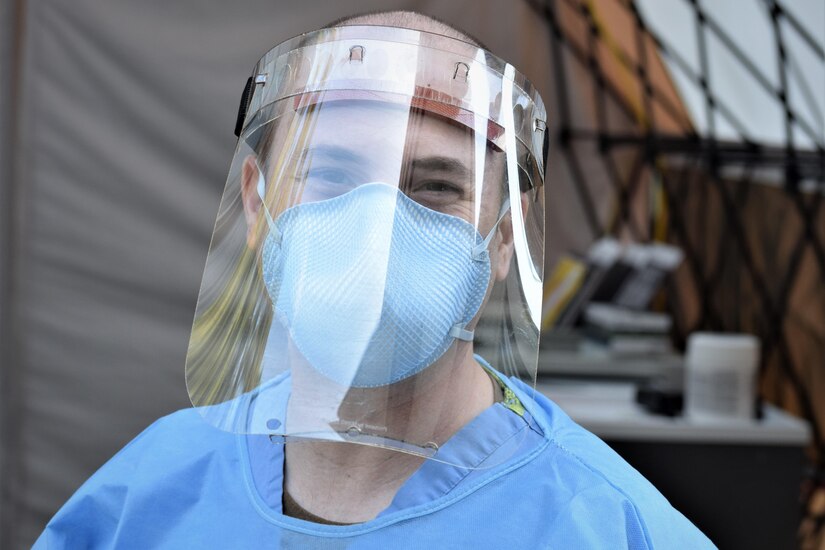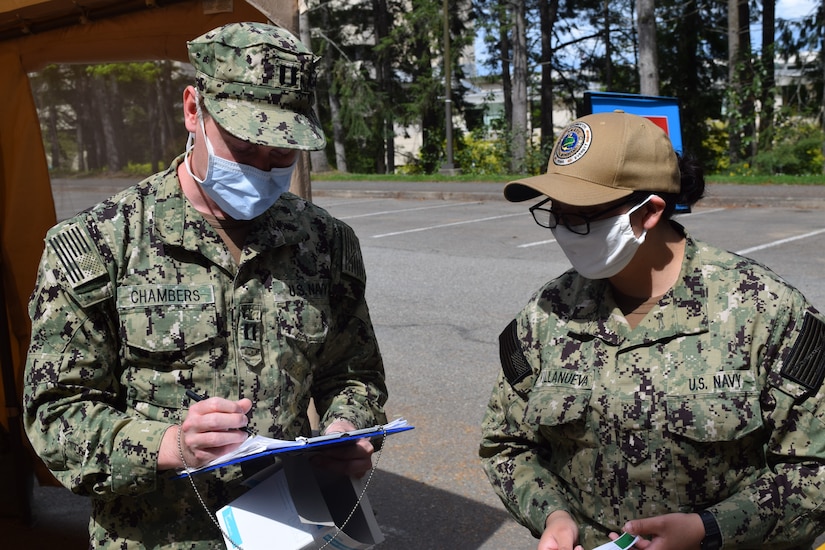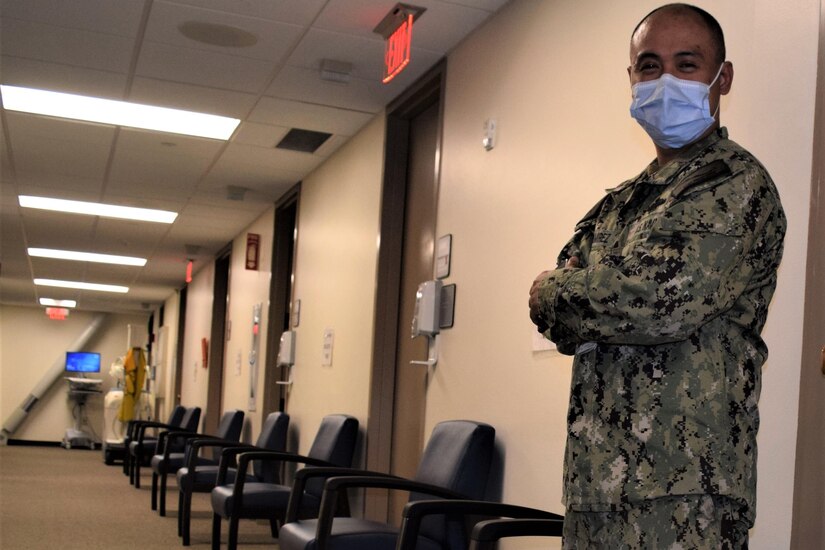Call it the COVID-19 complacency conundrum.
As Navy Medical Readiness and Training Command Bremerton in Washington state continues efforts to help stop the spread of COVID-19, staff members remain vigilant to any potential lapses.

"Now, more than ever, it is important to continue to practice social distancing, best hygiene practices and continue to wear our facial coverings when in public establishments or in group settings," Navy Cmdr. Robert Uniszkiewicz, the command's COVID-19 czar and public health emergency officer, stated.
Navy messaging is blunt and to the point regarding the possibility that any inaction and inadvertent action by anyone related to in-place mitigation measures can put the fleet, fighter and/or family at risk. The overarching Navy goal is to not let one sailor, civilian or family member become imperiled by complacency, especially after more than three months of restrictive measures, followed by a gradual lessening of those measures in some areas.
"We have been more fortunate than most with regard to the number of cases we have seen," Uniszkiewicz said. "But we have started to notice an increase in the number of cases since moving to Phase 2 in the local communities. This was not unexpected, but clearly shows that we must remain vigilant as COVID-19 is still in our community. People become comfortable and, often inadvertently, ease their protective measures, let down their facial covering and are lulled into a false sense of security. This would be a mistake. While it is exciting to be able to go out in town for the first time in months, enjoy the summer weather, ... we must continue the personal safety measures that have proven effective for our community."
Mike Pearson, the safety and occupational health manager at NMRTC Bremerton, said complacency on the job has always been a concern, and is even more of a concern during this time of COVID-19 in a military treatment facility.

"Now is not the time to be complacent by anyone," Pearson said. "Preventing COVID-19 from spreading isn't somebody else's job. It's everybody's job."
NMRTC Bremerton has proactively required all staff, especially active duty, to understand the current — and mandatory — Health Protection Guidance, or HPCON, Bravo measures in place.
HPCON Bravo requires that when people are close to others, they follow the 6 feet of physical distance requirement, and to wear cloth face coverings when with others for 15 or more minutes and when physical distancing can't be maintained.
"Those measures are how we can protect ourselves and how we can protect others," Pearson said.
HPCON Bravo also calls for practicing strict hygiene guidelines, such as frequent hand washing for at least 20 seconds, no handshaking, fist bumps, or high fives and limiting get-togethers to no more than 10 people with physical distancing in place.
"We also want everyone to avoid close contact with sick people, stay home if sick to reduce contact with others as much as possible; cover your nose and mouth when you cough or sneeze; don't touch your eyes, nose and mouth with unwashed hands to avoid spreading germs; and clean and disinfect surfaces and objects that may be contaminated with germs," Pearson added.

For Terry Lerma, the emergency preparedness manager for NMRTC Bremerton, just being able to see the changes the command has established to streamline care for patients during COVID-19 helps maintain his awareness of the task at hand.
"Constant vigilance and preparedness is the price of safety and security for our MTF staff and beneficiaries," Lerma said. "We all get visual reminders just driving in and seeing that initial screening tent, our sailors with their cloth face masks directing traffic and even how our normal routine now has such things like plastic shield guards in place where needed. Every little bit helps."
Uniszkiewicz emphasized the role of face masks. "My cloth face covering protects you. Your cloth face covering protects me," he said.








No comments:
Post a Comment